Revisiting 80s Bond: The Return of John Barry
LaLa Land Records Releases All the Notes in its New Deluxe Edition
This is the second in LaLaLand Records’ recently released, expanded deluxe editions of Bond movie soundtracks (I reviewed Live and Let Die here). The aim of these releases is always to present - if possible - every note composed for the film under consideration, sometimes even including ancillary promotional material. As with Live and Let Die, here the first CD presents every note of the Octopussy score in sequential order, plus some additional cues, while the second CD features the original soundtrack plus a bonus track. Necessarily we get duplication, but since most original soundtrack releases back in the day were highlights of the score edited together to create a representative and enjoyable listen away from the film, selecting either CD 1 or CD 2 gives the listener a very different experience. Like most of LaLaLand’s releases, these are limited editions, though even if the website shows they are currently sold out, represses are usually on the way.
LaLaLand is the market leader in releasing complete soundtrack editions, always with extensive notes by the top scholars in their field, beautifully presented with extra photos and attractive design. Expanded editions of David Arnold’s fine Bond scores from the Pierce Brosnan era have already graced their catalogue Now it’s the turn of the Roger Moore era of Bond, and with Octopussy we get the return of John Barry to the franchise.
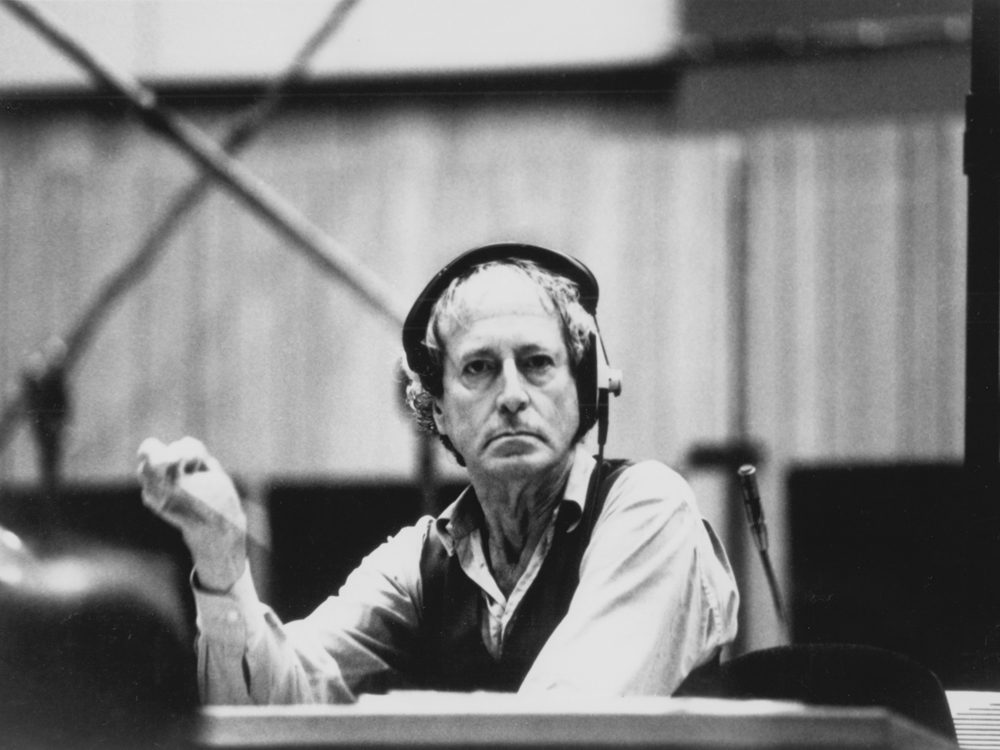 John Barry
John Barry
Some background. Ten years after Live and Let Die and three films into his tenure, Roger Moore was so comfortable in the role that half the time he looked like he was acting from a very comfortable recliner in his trailer. After the so-ridiculous-it’s-funny-but-not-really spectacle that was Moonraker (1979) threatened to tank the credibility of the whole series (Bond does Star Wars), despite healthy box office and one of Barry’s most opulent and listenable scores, the producers rightly decided a bit of a rethink was called for. The plot lines began a return to spy thriller basics, and by promoting former Bond editor and second unit director John Glen to the director’s chair, producer Albert Broccoli hoped to reinvigorate the series with at least a modicum of reality.
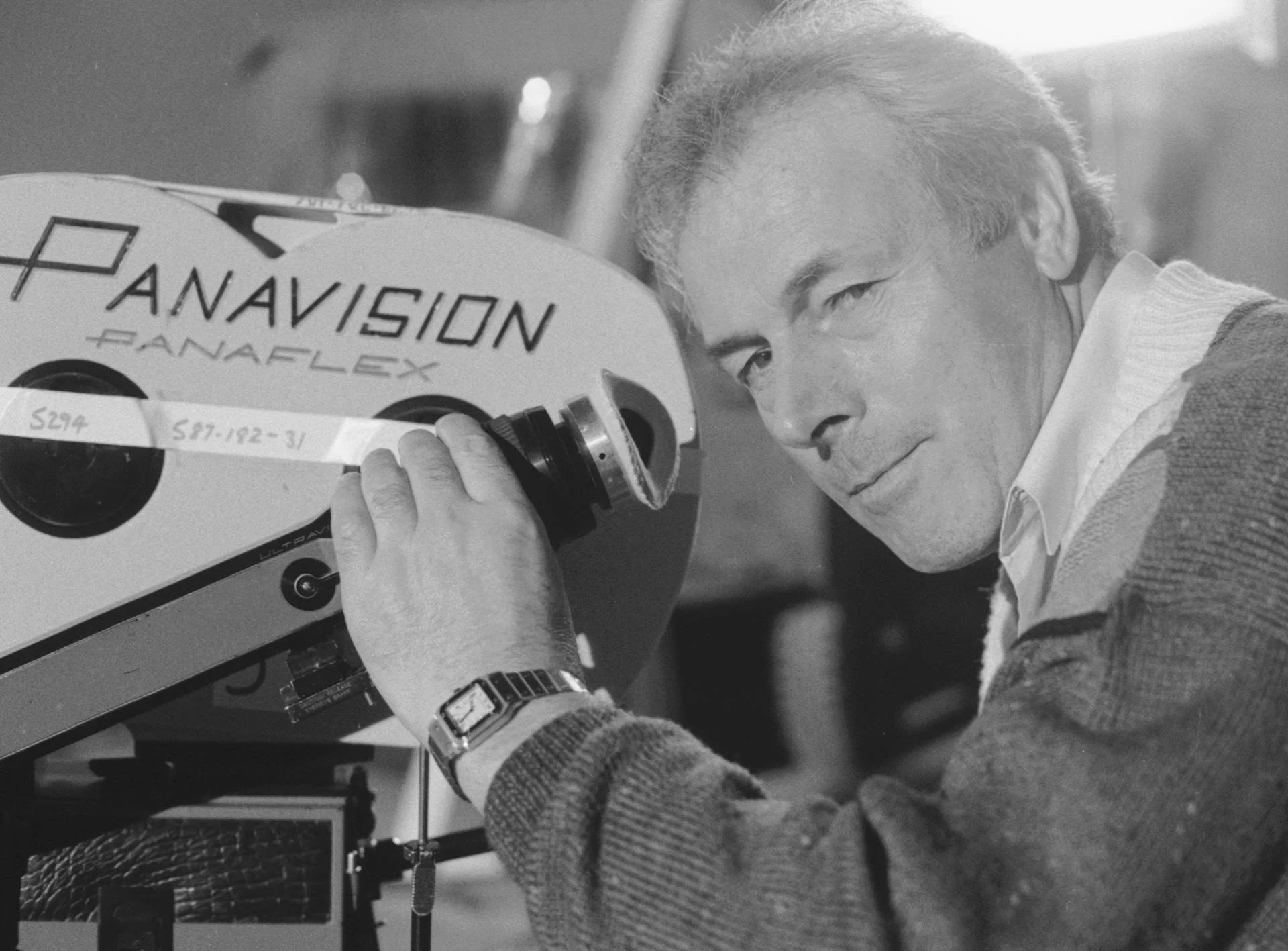 Director John Glen
Director John Glen
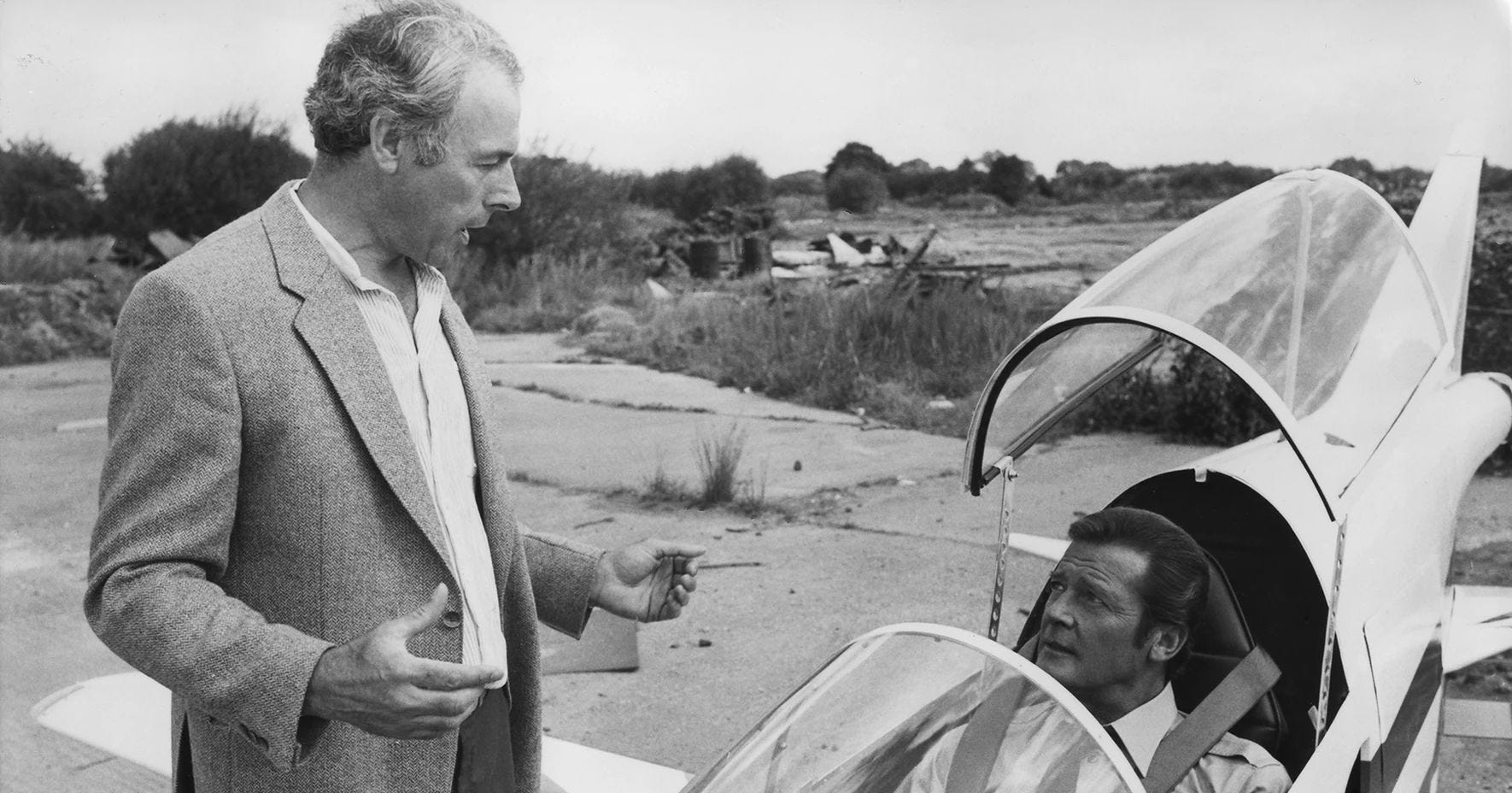 John Glen directing Roger Moore in pre-titles sequence for Octopussy
John Glen directing Roger Moore in pre-titles sequence for Octopussy
Glen was following in the footsteps of Peter Hunt, the editor of the early films whose appropriation of the French New Wave’s jump-cutting techniques had reinvented screen action. Hunt had taken the helm for what many consider the best of the pre-Daniel Craig films, On Her Majesty’s Secret Service (1969), despite George Lazenby’s stilted but increasingly well-regarded turn as Bond. Hunt’s gritty, realistic approach was graced with a truly moving love story involving a Bond heroine of real substance portrayed by the Shakespearean actress and former Avenger Diana Rigg. It inspired Barry to pen his greatest Bond score, which unsurprisingly was quoted liberally by Hans Zimmer in Daniel Craig’s final outing in the role in No Time to Die (2021).
The first fruits of the 80s revamp of Bond was For Your Eyes Only (1981), a welcome return to spy thriller and somewhat-rooted-in-reality action basics. Roger Moore’s performance likewise gained a little more edge, although he continued to play to his gentleman-scoundrel inclinations. John Barry was unavailable owing mainly to complicated tax entanglements (later remedied). However, in some ways this was a good thing because it provided an opportunity to underline the revamped Bond with a different sonic palette. Broccoli and Glen turned to the American composer of the score for Rocky, Bill Conti. Like George Martin and Marvin Hamlisch before him, Conti turned in a more poppy score redolent of the times, and together with having the novelty of the singer of the title song, Sheena Easton, onscreen during the title sequence, the score helped freshen up the franchise considerably.
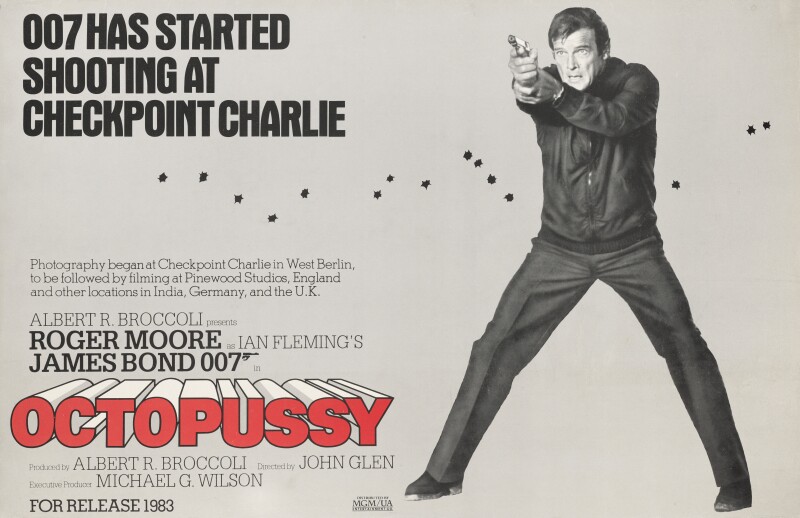 Advance UK Poster for Octopussy
Advance UK Poster for Octopussy
So was it perhaps a mixed blessing that with the challengingly named Octopussy (1983), Barry was back on board? Listening to this special edition of every single note of Barry’s occasionally repetitive and meandering score, I found myself wondering this very same heinous thought.
For all kinds of reasons, which include the dodgy sound which derives from the original recording sessions, this is one expanded edition that even the hardcore Bond and Barry enthusiast might have trouble listening to often.
However, before we get too far into the negatives, let’s remind ourselves that this is John Barry at work here, and without doubt there are some compensating positives lurking in the sonic murk that for some unaccountable reason the composer - here also acting as the score’s producer - felt was an acceptable vessel for his music. (More on the sound later).
As with all Bond scores, it all starts with the title song, which in this case was the veritable elephant in the room. You can bet every single film critic and movie goer who filed into screenings of this latest Bond movie back in 1983 was wondering the same thing. That title. How on earth were they going to put that in a song?! A song!!
.webp) Cover for the 1st Edition Hardback of Ian Fleming's Novellas
Cover for the 1st Edition Hardback of Ian Fleming's Novellas
Well the answer, of course, is they didn’t. Finally Ian Fleming’s penchant for racy sexual double entendres was too much for even the most cunning of Bond lyricists. For the first time ever, the film’s title was not going to be in the song. (This of course begs the question: how on earth did they manage to get away with using this as the title of the film at all?! )
As Variety film music critic Jon Burlingame recounts in his book The Music of James Bond, and in his detailed sleeve notes that accompany this LaLaLand Records’ release, Tim Rice, the lyricist to whom Barry turned when his usual collaborator Don Black was unavailable, recalls being approached:
“It really was a bit out of the blue. I was very surprised, to be honest. My first thought was, obviously, great! My second thought was, what’s the film called? And when I was told Octopussy, I thought, hmm, not so great…”
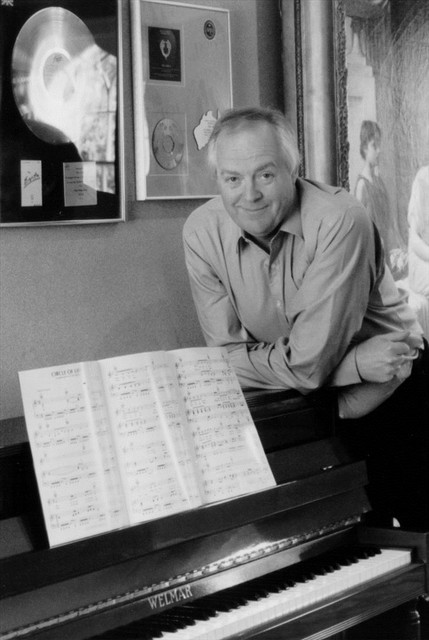 Tim Rice
Tim Rice
Tim Rice had already penned the lyrics to a number of hit Andrew Lloyd Webber hit musicals, including Jesus Christ Superstar, and was one of the most adroit wordsmiths out there. Barry told him they weren’t even going to attempt to integrate the movie title into the song, and suggested he come up with a number of alternative titles. The pair settled on “All Time High”. Barry immediately wrote a musical phrase incorporating those words.
Rice told Burlingame he struggled with the lyric:
“Conventional love songs are the hardest things to write and I remember thinking I wish I had a title like "Diamonds are Forever", which is a brilliant lyric by Don. It sets you off on a slightly more original approach to things.” But Rice forged ahead, borrowing the phrase “we’re two of a kind” from Octopussy’s dialogue and adding lyrics like “we’ll take on the world and win/so hold on tight, let the flight begin,” which appears to refer to the climactic aerial scenes in the film.
Although latest hitmaker Laura Branigan (“Gloria”) was briefly under consideration for singing the title song, that task eventually fell to Rita Coolidge, who had had a series of Top 10 hits a few years earlier. It was a happy collaboration with Barry.
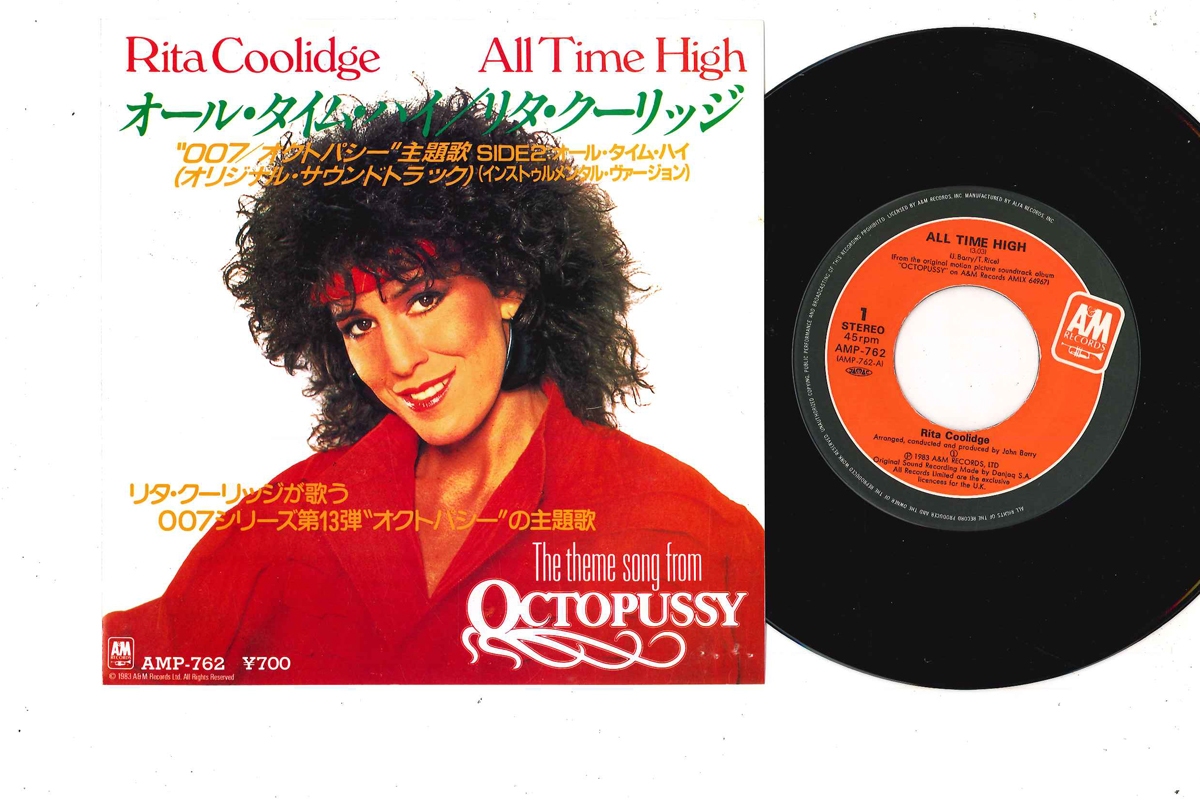 Japanese Single 45 of "All Time High"
Japanese Single 45 of "All Time High"
However, it must be said that the resulting song is one of the more underwhelming of the Barry title songs. A beautiful melody, yes, but undercharged, with Coolidge’s vocal sometimes unfocused. Rice’s lyrics are a little bland, a fact that Rice himself conceded 28 years later in conversation with Burlingame:
“It’s not one of the most exciting Bond songs. It’s just a nice, dreamy ballad. Looking back at it I think it would have been more interesting had we tried to write a song called ‘Octopussy’. It could have been quite clever. One’s immediate thought was something rather salacious… but in a funny way, that might have made it a more exciting song. It could even have been in the same tune: Da da da da da da Octo-pussy bum ba bum ba bum….”
Incidentally, it's the first Bond theme song to get its own dedicated music video.
As to the main score itself, one of the main tasks given to Barry by producer Broccoli was to use his music to differentiate this “authentic” Bond film from the competition, which was Sean Connery returning to the role in Never Say Never Again, a retread of Thunderball made possible by an ultimately successful, years-long intellectual property lawsuit brought by one of the co-authors of the original story for the earlier film and book, Kevin McClory. Barry had been approached by Connery’s team to write the music for Never Say Never Again, but he demurred out of loyalty to Broccoli.
To help “brand” Octopussy as authentic Bond, Barry used his iconic James Bond Theme even more liberally than usual. He also peppered the score with a quintessentially Bondian (and Barry-esque) “action cue” featuring staccato brass and xylophone, nervous strings and high bluesy wind which, although highly effective, somewhat wears out its welcome when it is repeated as often as it is with little or no variation. Sample it on the track “Gobinda Attacks” and "Yo-Yo Attack".
Naturally Barry weaves the main title theme, “All Time High”, throughout the score, further linking the film to its hit single. The music for Octopussy is at its best in its more romantic cues associated with our heroine (eg. the second half of the track above, starting at 3:09), the head of an all-women Ninja squad (well, this is still a Bond film) with the mind-boggling name of the film’s title. (One of the film’s unintended ancillary pleasures is hearing the villain, played by former French matinée idol and dream boat, Louis Jordan of Gigi fame, splutter her name: “Octopussy!”)
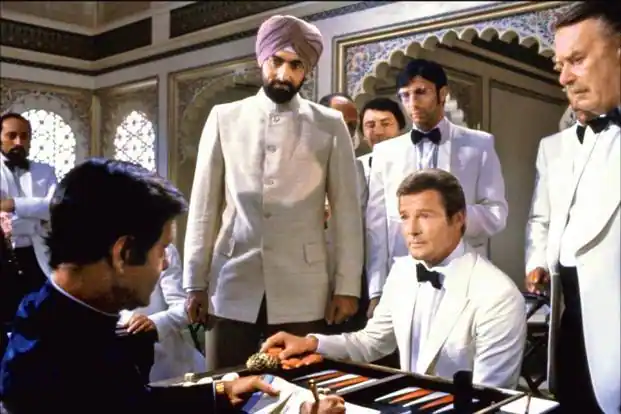 Louis Jordan (l.) and Roger Moore
Louis Jordan (l.) and Roger Moore
The film's opportunities for more romantic music are clearly of greater interest to the composer, reflecting Barry’s increasing stylistic move towards a lush symphonic mode during this period of his career and beyond. (Listen to his late re-recordings of his film music with the Royal Philharmonic Orchestra, especially the collection titled “Moviola 2: Action and Adventure”, and you will be hard-pressed to believe any of this was ever music of “action and adventure”).
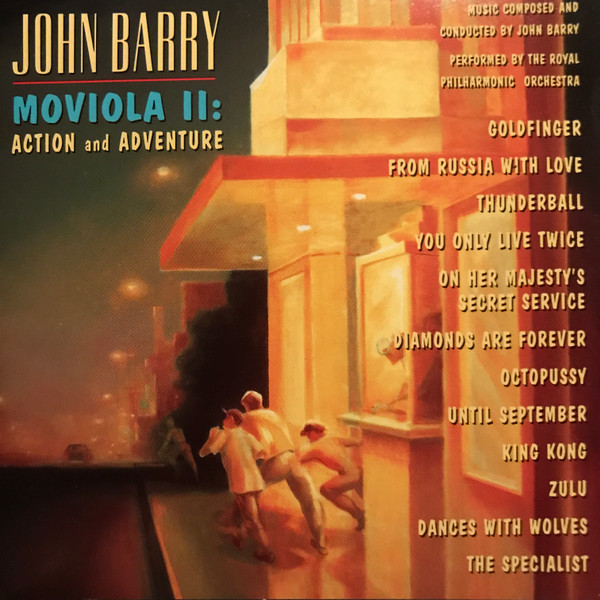
The plot for Octopussy, despite sharing with its predecessor a move towards less outlandish spy thriller exploits, nevertheless succumbs to a certain self-indulgence in its globe-trotting antics, unable to resist occasional silliness, and overly complex narrative peccadillos. All of this is mirrored in the music. On the one hand this can give rise to more unusual, gritty Barry action cues like “The Chase Bomb Theme”; on the other hand we get a lot of musical time filler, papering over the narrative cracks, and not entirely disguising what I suspect was a certain amount of boredom with the whole affair on the composer’s part.
When it comes to reflecting the Indian locations, Barry resists throwing in the odd sitar and tabla like most composers would have done, and thank goodness he did. As Burlingame notes: ‘…(Barry) later remarked: “If you dropped authentic music into these locales, they didn’t work dramatically,” adding that the subtlety was like “adding salt and pepper. All you could really do was keep the Bondian emphasis going, and then just give it color.”’
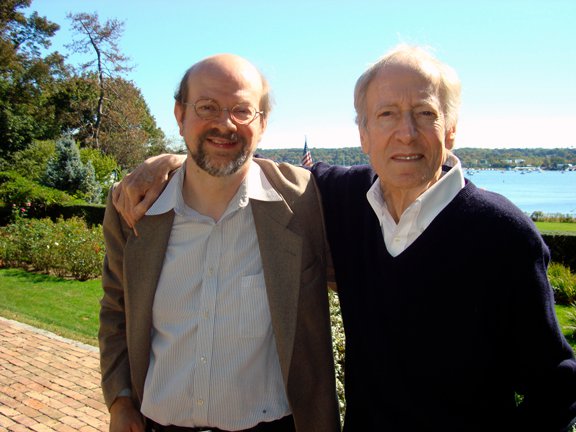 Author and Variety film music critic Jon Burlingame (l.) with John Barry (credit: Jon Burlingame)
Author and Variety film music critic Jon Burlingame (l.) with John Barry (credit: Jon Burlingame)
Let’s talk about the sound. When Barry returned to the franchise after Live and Let Die with The Man with the Golden Gun (1974), he unaccountably recorded the orchestra with so much reverb it sounded like it was being played in the world’s largest empty swimming-pool. There was so much echo that the amount of slap-back on, for example, those distinctive rat-a-tat brass jabs which are such an integral part of the Barry Bond sound, turned them into mush - thus defeating their musical purpose.
On Octopussy the amount of reverberation and echo is again self-defeating, compounded by the thinner sounding early 80s engineering. Even the title song, produced by the legendary Phil Ramone who was a long-time friend of Barry’s and had worked on early Bond, succumbs to the sonic trends of the time where everything just started to sound overly bright (a harbinger of the fully-fledged digititis that was soon to infect all recorded music).
None of this would be fixable by any amount of brilliant remastering, but as with Live and Let Die the inclination of the remastering engineers for this release has been to illuminate detail over enhancing warmth, so this release is far from being a balmy listen.
I must confess to never having owned a vinyl copy of this soundtrack, and maybe a UK pressing would be more acceptable. I’m not sure, though: my original UK copy of The Man with the Golden Gun reveals all the same peculiar engineering choices as Octopussy in all their sonic non-glory. As with Live and Let Die, listening to the original soundtrack album (on CD2 of this release) gets you the essence of the score distilled.
Still, Octopussy is Bond, it’s Barry, and has its own charms. For completists it’s a mandatory purchase despite the flaws, and there is nothing negative to say about LaLaLand’s customary excellent presentation. But with the next Bond release, guys, (and I yearn for that to be The Living Daylights, Barry’s top-notch farewell to the series), please consider using a different remastering house.
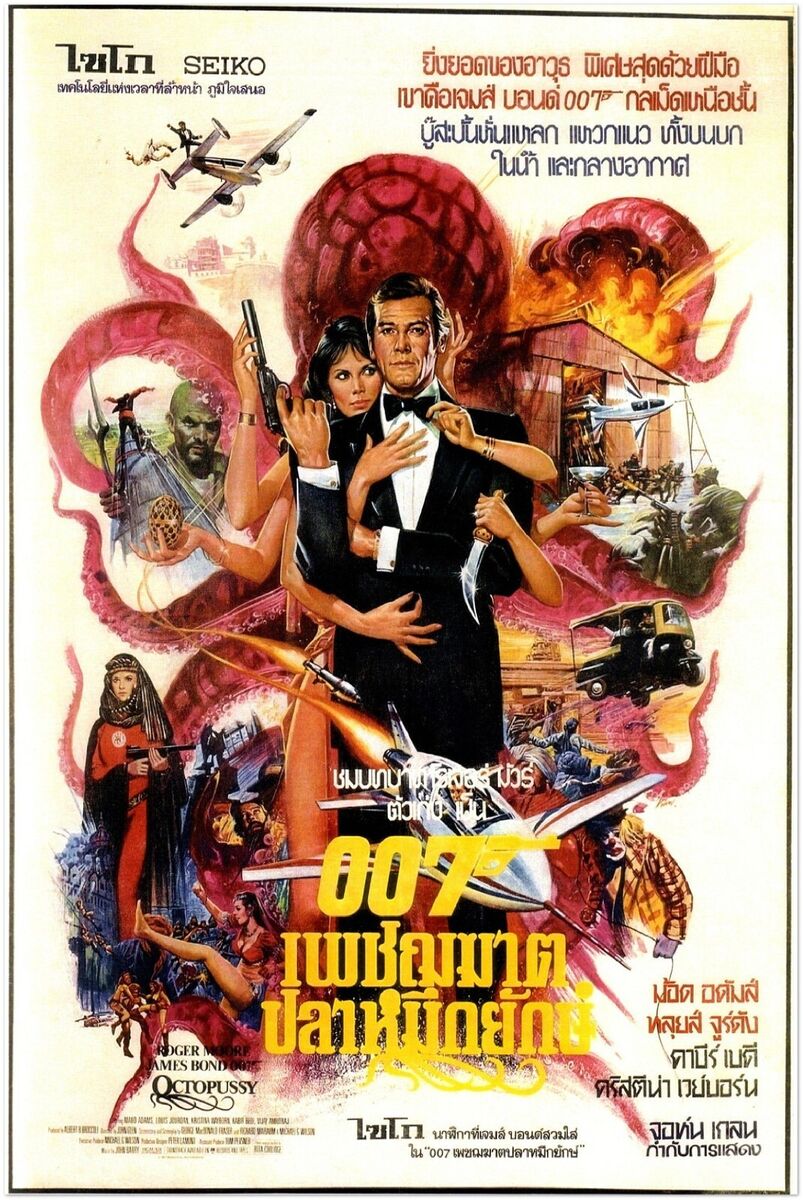 Thai Poster for Octopussy
Thai Poster for Octopussy




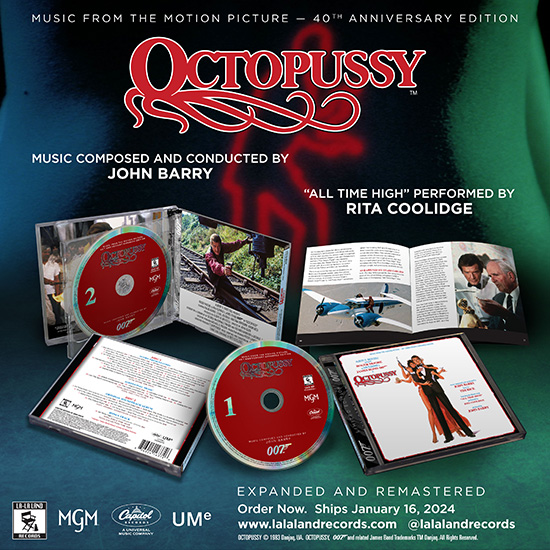




































.png)








